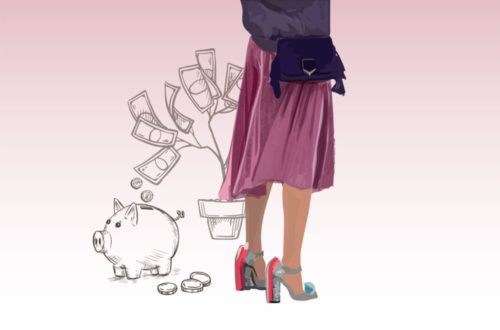How to Reduce the Cost of Childcare?
The Story
One of the (unwanted) surprises of becoming a parent is the cost of childcare. Sometimes this can be as much as your yearly rent or mortgage! Yeah, seriously. Before you write-off going on holiday for a long time, check out these government schemes which can save you thousands of pounds each year.
In this guide:
- Tax-Free Childcare
- Childcare Vouchers
- Which is best, Tax-Free Childcare or Childcare Vouchers?
Last year the government launched a scheme called Tax-Free Childcare which can save you up to £2,000 a year per a child.
How does Tax-Free Childcare work?
You and your partner pay money into an online Childcare Account and pay your nursery, nanny or other approved childcare from this. For every £8 you pay-in the government will add £2. For example, you pay-in £800 and they top up £200 giving a total of £1,000. You can get this bonus for any of your children if they are 11 or under.
Side note: The governments ‘bonus’ is capped at £2,000 per child. That is, if the cost of your childcare is £10,000 a year, you pay-in £8,000 and the gov pays £2,000. If the cost is £12,000 a year, you will pay-in £10,000 and the gov still pays £2,000.
Can anyone apply?
You and your partner have to be:
• In work – or getting parental leave, sick pay or annual leave;
• Each earning at least the minimum wage for 16 hours a week (which is £120 a week if you are over 25);
• Earn less than £100,000 a year.
You can also apply if you are self-employed. There is no minimum earnings requirement in your first 12 months of self-employment.
Side note: If you are not working but your partner is and you receive Incapacity Benefit, Severe Disablement Allowance, Carer’s Allowance or Employment and Support Allowance you may still be eligible.
How to apply?
First you need a Government Gateway account, you can register here. It takes 20 minutes and you will need your National Insurance number and, if you’re self-employed, your Unique Taxpayer Reference (UTR).
What about Childcare Vouchers?
Many employers offer a salary sacrifice scheme, aka money taken out of your salary before tax, to buy vouchers which are then used to pay for childcare. The ‘bonus’ here is that you don’t pay income tax or national insurance (N.I.) on the money spent on childcare. But these vouchers are capped depending on how much you earn – the more you earn, the less you get. Here’s a breakdown based on one year:
Yearly Salary
Vouchers Amount
The Saving
Basic Rate:
£11,501 – £45,000£2,860 £930 Higher Rate;
£45,001 – £150,000£1,456 £630 Additional Rate:
£150,000+£1,300 £590 Both you and your partner can get vouchers as long as they are offered by your employers. To calculate your total saving, add-up both of your savings. For example, if you are a Higher rate tax-payer and your partner is a Basic rate tax-payer, your total saving is £630 + £930 = £1,560
Which is best, Tax-Free Childcare or Vouchers?
You can only sign-up to one scheme and the deadline for joining the Childcare Voucher scheme is October 2018. So now is the time to decide which is for you. If you are already using vouchers it may benefit you to switch. Read on.
Knowing which is best comes down to you and your partner’s personal circumstances:
If you or your partner earn over £100,000 you are not eligible for Tax-Free Childcare hence you can only use Vouchers.
Or,
If you spend more than £9,300 a year (£775 a month) on childcare, Tax-Free Childcare is best.
Spend less than £9,300 a year? It depends on how much you and your partner earn and how much you spend on childcare. Find your scenario below to see if Tax-Relief Childcare is the best for you:
How many parents get vouchers?
Parent(s) Income Tax Band
Tax-Relief Childcare is best if you spend more than…
Both parents Both Basic Rate £9,300 a year One Higher Rate and one Basic Rate £7,800 a year Both Higher Rate £6,300 a year One parent Basic Rate £4,650 a year Higher Rate £3,150 a year What if you have more than one child?
The above rules still apply.
RELATED ARTICLES












